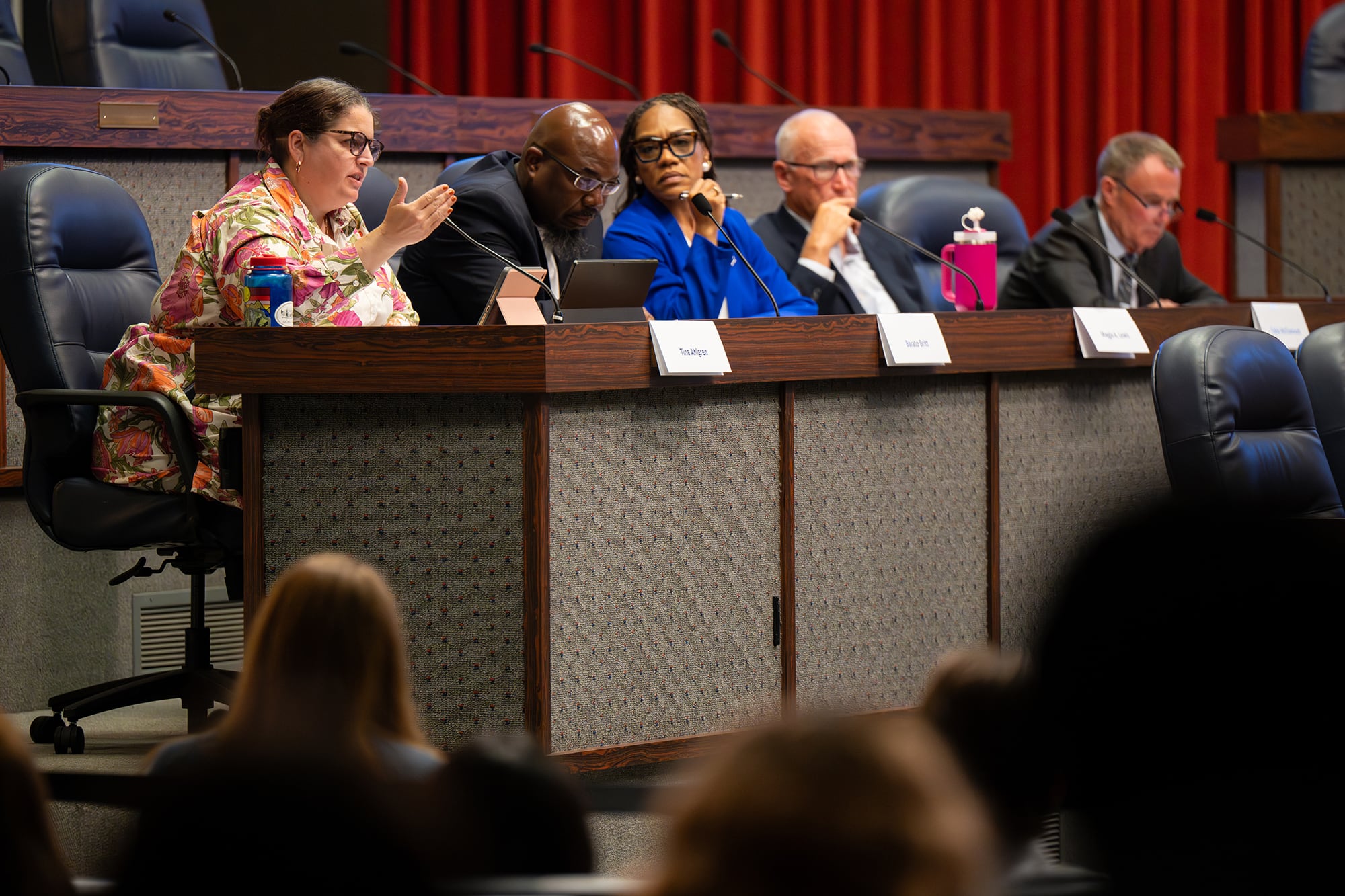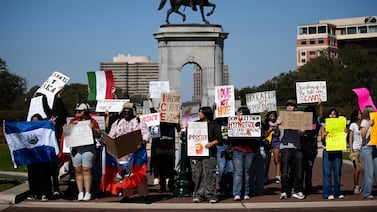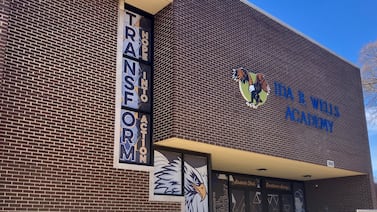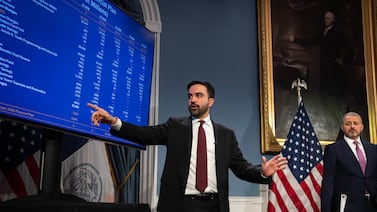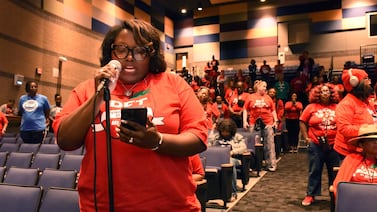Sign up for Chalkbeat Indiana’s free daily newsletter to keep up with Indianapolis Public Schools, Marion County’s township districts, and statewide education news.
The price and availability of transportation for Indianapolis Public Schools and the dozens of charters in its borders vary greatly. Some challenges, however, are universal: finding dependable vendors, negotiating rising costs, and ensuring student safety.
The challenges with transportation, outlined in the fourth public meeting of the Indianapolis Local Education Alliance by district and charter leaders, suggest that cost and logistics are barriers for charter schools, which have smaller budgets and smaller populations than the district as a whole.
The ILEA is tasked with making recommendations by the end of the year to state lawmakers. That includes solutions to address transportation problems for three school types: IPS, which has the buying power of a large district but has reduced the number of bus routes in recent years, charter schools within the IPS Innovation Network that use IPS transportation services, and independent charter schools that hire their own transportation or don’t provide it.
The ILEA must also make recommendations on efficient building usage across district and charter schools and could make suggestions on a governance model for all school types.
Roughly 18,300 IPS and Innovation schools students are projected to ride the yellow bus this school year, IPS Deputy Superintendent Andrew Strope told the alliance in a presentation. Another 2,100 will walk to school, and 900 high school students will take the city’s public transportation system, IndyGo.
Transportation costs an estimated 2,500 per student, according to the district. Last school year, yellow bus service cost about $40 million.
At Victory College Prep, a large K-12 charter network on the southeast side, bus services cost roughly $1.7 million annually, or 10% of the network’s operating budget, executive director Ryan Gall told the alliance. That includes 400 bus stops and bus service to internship opportunities, athletics, and after-school programming.
The Path School charter school within the IPS Innovation Network received IPS transportation at no cost in its first five years. This year, however, it will pay IPS roughly $250,000 for the service. Its transportation cost was among $12 million in busing services IPS paid for Innovation schools last year, according to the district. That represented 23% of the total transportation budget.
IPS — which has a higher proportion of students with disabilities than the charter sector — also spends a portion of its state-allocated special education funding on bus monitors and specialized equipment, such as wheelchair lifts, for these students.
ILEA member Andrew Neal stressed that the group must consider transportation opportunities for those types of students with the highest barriers to transportation access.
“As we think about these smaller populations, when we design systems or opportunities, when we solve for those who have the highest barriers, we solve for everyone else,” he said.
Public comment stresses limited funding
In public comment, supporters of traditional IPS schools urged the ILEA to allow the elected school board to continue to oversee bus services instead of outsourcing transportation under a separate authority.
They also argued that sharing resources with charter schools would further strain transportation resources that are already stretched thin. Instead, they asked whether charter schools could receive transportation funding from education reform donors and questioned the salaries of charter leaders.
“You seem to be laboring under the delusion that we have a surplus of buses to offer you, when the reality is that my public school kids, the kids you also serve, are already forced to take the city bus or an alternative means of transportation,” said Hannah Marley, a teacher at Crispus Attucks High School.
But advocates with RISE Indy and Stand for Children, groups that have supported charter schools, urged the alliance to look beyond the charter-IPS political divide and solve the transportation challenge for all students regardless of school type.
Lina Soche said she had to change her work schedule to get her son to Promise Prep, a charter school on the east side, before pushing the school to provide bus service for her son.
“This stress affects both parents and children,” she said, noting that centralizing the system would help everyone.
Guthrie Beyer, an IPS graduate, said the only solution is for a democratic body to raise taxes to fund the transportation system adequately.
“The IPS budget is shrinking because of the state legislature’s property tax cut, and so the dirty secret that everyone is dancing around is there’s not enough money for buses for anyone,” he said. “That’s the problem.”
Demands extend beyond transportation, buildings
Those supportive of traditional IPS schools stressed that the transportation challenges were exacerbated by the city’s embrace of school choice.
“We need to eliminate the self-imposed complexity caused by so-called school choice,” said Jishnu Guha-Majumdar, a university professor and taxpayer. “We don’t need to bus from every part of the district to every other part of the district.”
Instead, he said, the city should make a democratically elected school board the sole authorizer of charter schools, end the revolving door of new charters, and fully fund public schools.
The suggestions are similar to recommendations made by advocates with Stand for Children. Its plan calls for the school board to be the sole authorizer of charters within district boundaries but also calls for a board with both appointed and elected members.
The plan also calls for a transportation service operated by the district’s central office for all schools and a uniform accountability system that would prioritize facility space for schools that are successful. Determining a school’s success, the petition states, would not depend solely on test scores.
At an IPS school board meeting on Tuesday, board members also brainstormed what requests it should make to the ILEA in a formal statement that has yet to be submitted. Members agreed that the board should be elected.
Board members also agreed on a number of other requests, including a limit on the number of charter authorizers and a pause in the creation of new schools.
Board member Nicole Carey cautioned at Tuesday’s meeting that universal transportation across the district is financially untenable. There must be guardrails, she said, to ensure the district’s financial health while also offering transportation.
“For the sake of access for everyone everywhere, if we can’t afford to have a basic education, then that doesn’t make sense,” she said.
The next ILEA meetings are on Oct. 22, Nov. 19, and Dec. 17 at 6 p.m. at locations to be announced.
Amelia Pak-Harvey covers Indianapolis and Lawrence Township schools for Chalkbeat Indiana. Contact Amelia at apak-harvey@chalkbeat.org.

